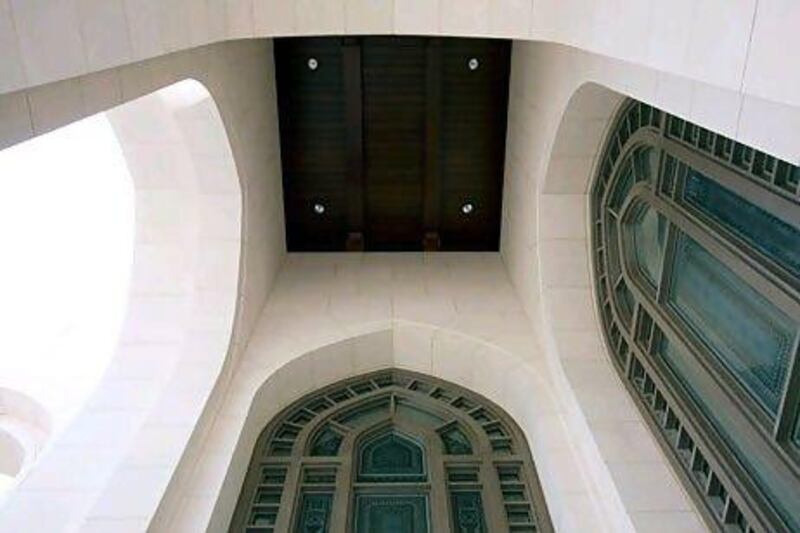MUSCAT // An evening at the opera will soon be an option for tourists visiting Oman.
The country is planning to launch the first Royal Opera House in the Gulf region by the end of this year.
It is hoped the opera house in Muscat will help to attract high-spending visitors to Oman as it focuses on expanding tourism's contribution to the economy.
Construction started on the property in 2007.
More Business news: Editor's pick of today's headlines
Industry Insights // UAE, Qatar likely to emerge bullish Focus: Frank Kane talks to Nadi Bargouti, the head of asset management at Shuaa Capital who ran the Mena region's best-performing fund last year. Read article
Visa change for homebuyers to spark UAE housing market recovery Property executives are applauding a move to extend residency visas to property buyers. Read article
UAE residents lament lack of savings A new study finds 86 per cent of residents are worried about their savings, as the UAE grapples with mounting personal debts. Read article
[ More business ]
The venue "will become an iconic building for Oman and a world-class venue for performing arts", said Salem Al Mamari, the director general of tourism promotions at Oman's ministry of tourism.
The venue, highly anticipated by locals in Muscat, is likely to attract opera singers and other performers from around the world, as well as local musicians, according to the ministry.
The Royal Opera House will release a programme of upcoming performances soon, Mr Al Mamari said.
This year, tourism is expected to account for US$1.93 billion (Dh7.08bn), or about 3 per cent, of the country's economy. Last year, the sultanate attracted more than 1.6 million tourists.
Hoteliers said there had been a noticeable decline in visitors from Europe in the past few months because of concerns among travellers prompted by protests in the country.
Oman has largely focused on its cultural, historical and natural assets in its tourism promotions.
It has approved the spending of about $8bn on tourism-related property developments across the country, according to the ministry of tourism.
"The next few months will witness the opening of 1,400 new hotel rooms," the ministry said. "The launch of new resorts and hotels will be welcome developments as demand can be very overwhelming during peak seasons. We also need to broaden the base of mid-range and budget hotels."
The sultanate is also improving its airport infrastructure. Muscat International and Salalah airports are being expanded, while new local airports are being built.
Oman has stressed it is keen to preserve its culture and traditions.
"We are not looking for mass tourism," Mr Al Mamari told The National recently. "We are not into numbers. We are into the quality of the tourist. Oman is a niche market. We are trying to tackle a certain segment, and tourists who will be able to help us to keep and maintain Oman as it is for generations to come."
The tourism department is planning to develop several of its forts and castles into museums and is converting some of its old villages into guest accommodation. The UAE is the main source of tourists from the GCC visiting Oman.
Many other tourism developments are taking place in the country, with a growing number of international hotel brands entering the market. Among the hotels under development in Oman are Moevenpick and Club Med properties in Salalah.
Oman's tourism industry is expected to directly employ 35,000 people this year, increasing to 50,000 jobs by 2021, according to the World Travel and Tourism Council.
"The state has stepped up its programme of developing airport and road links to more remote areas of the country," according to a report by the Oxford Business Group. "It is providing financial incentives in the form of tax holidays for investors in the sector, and cheap land for locals in rural regions to use for tourism purposes."






